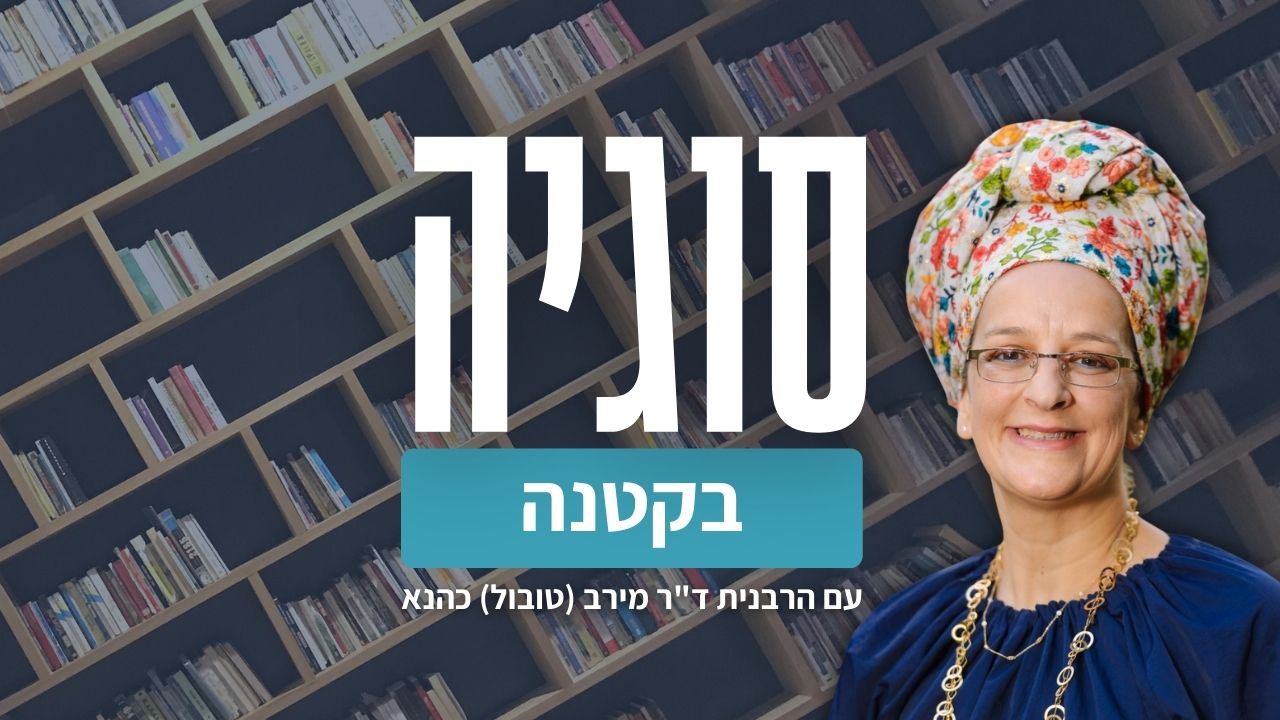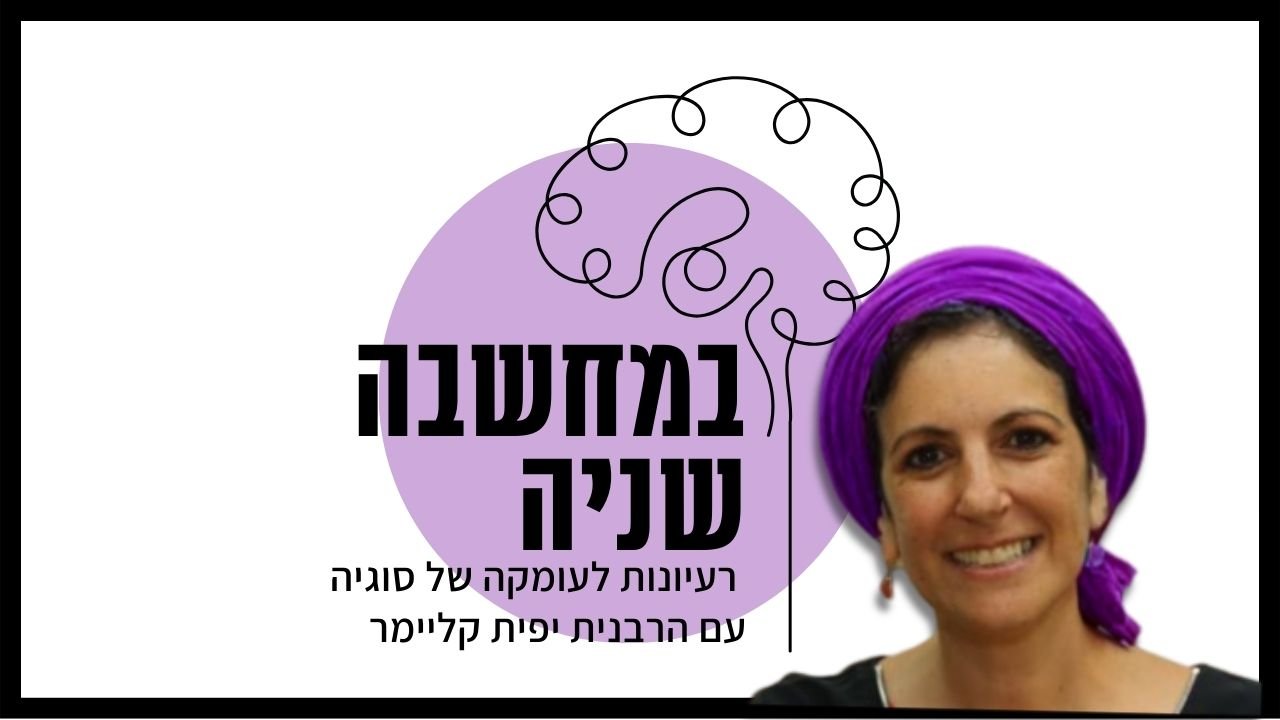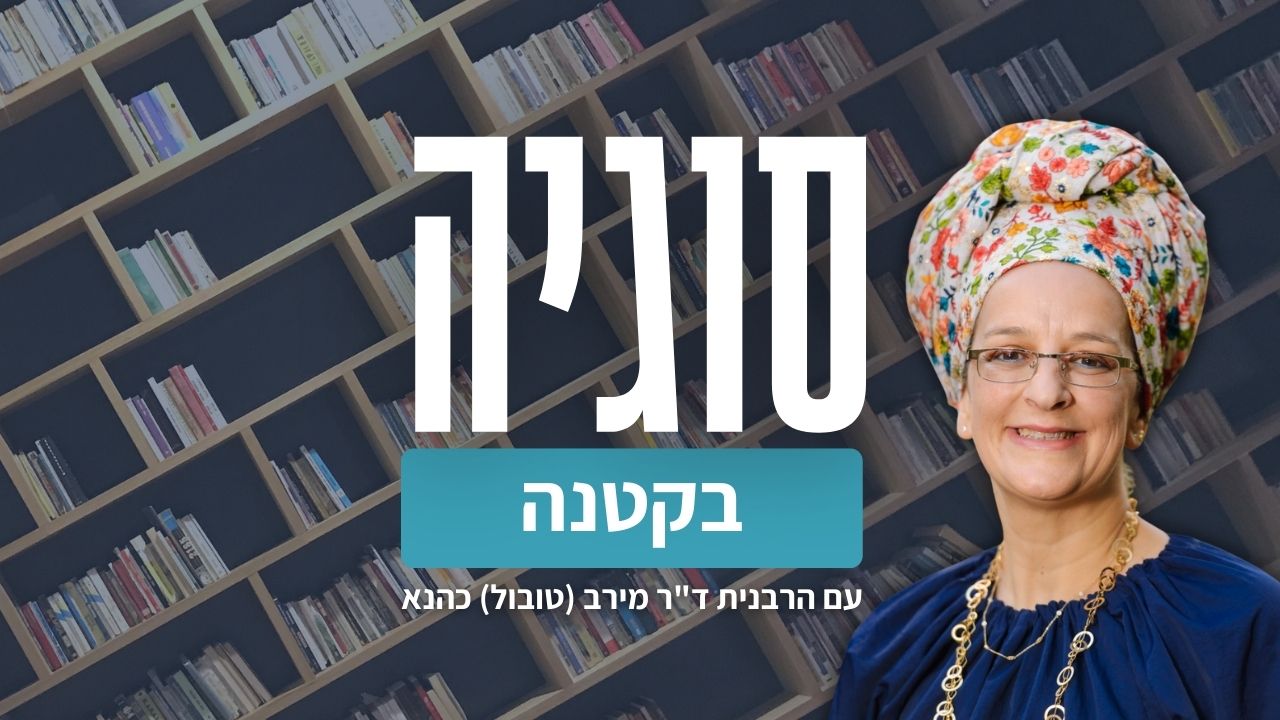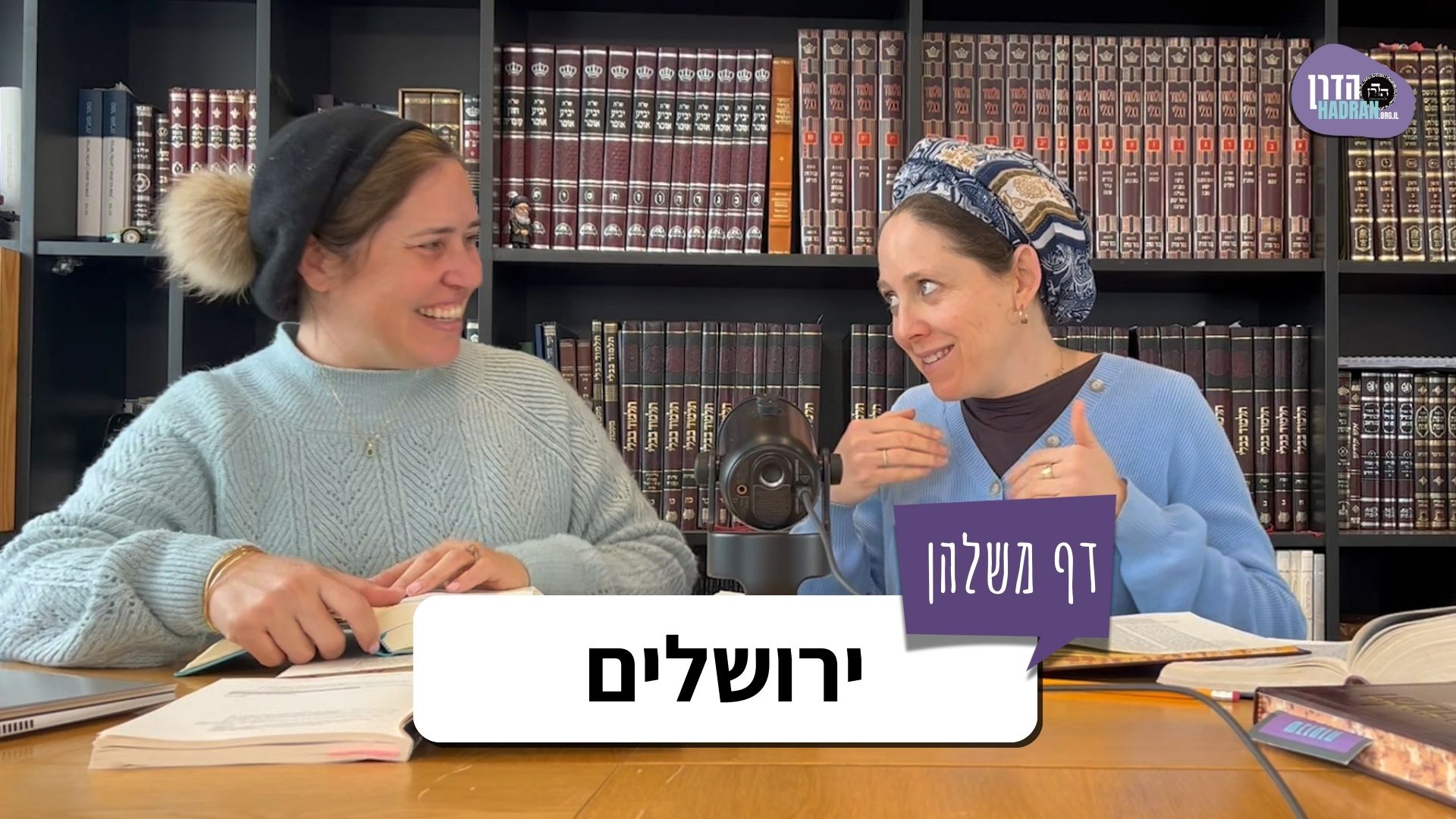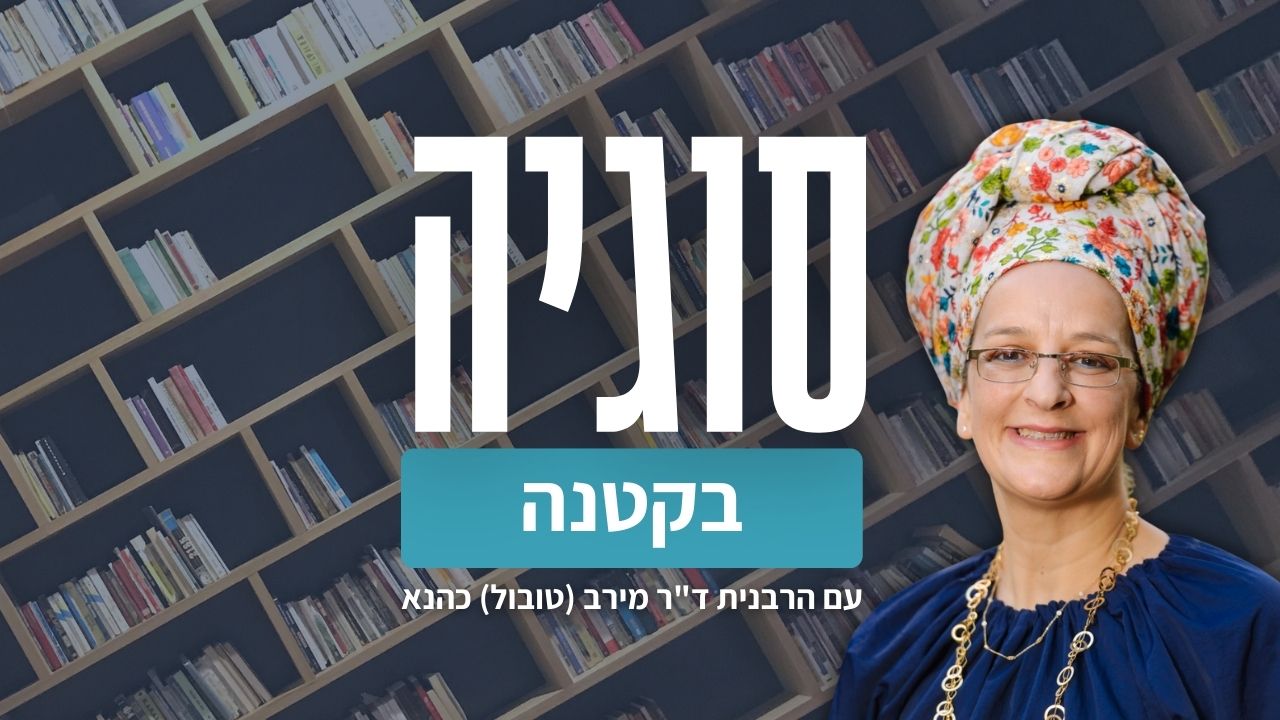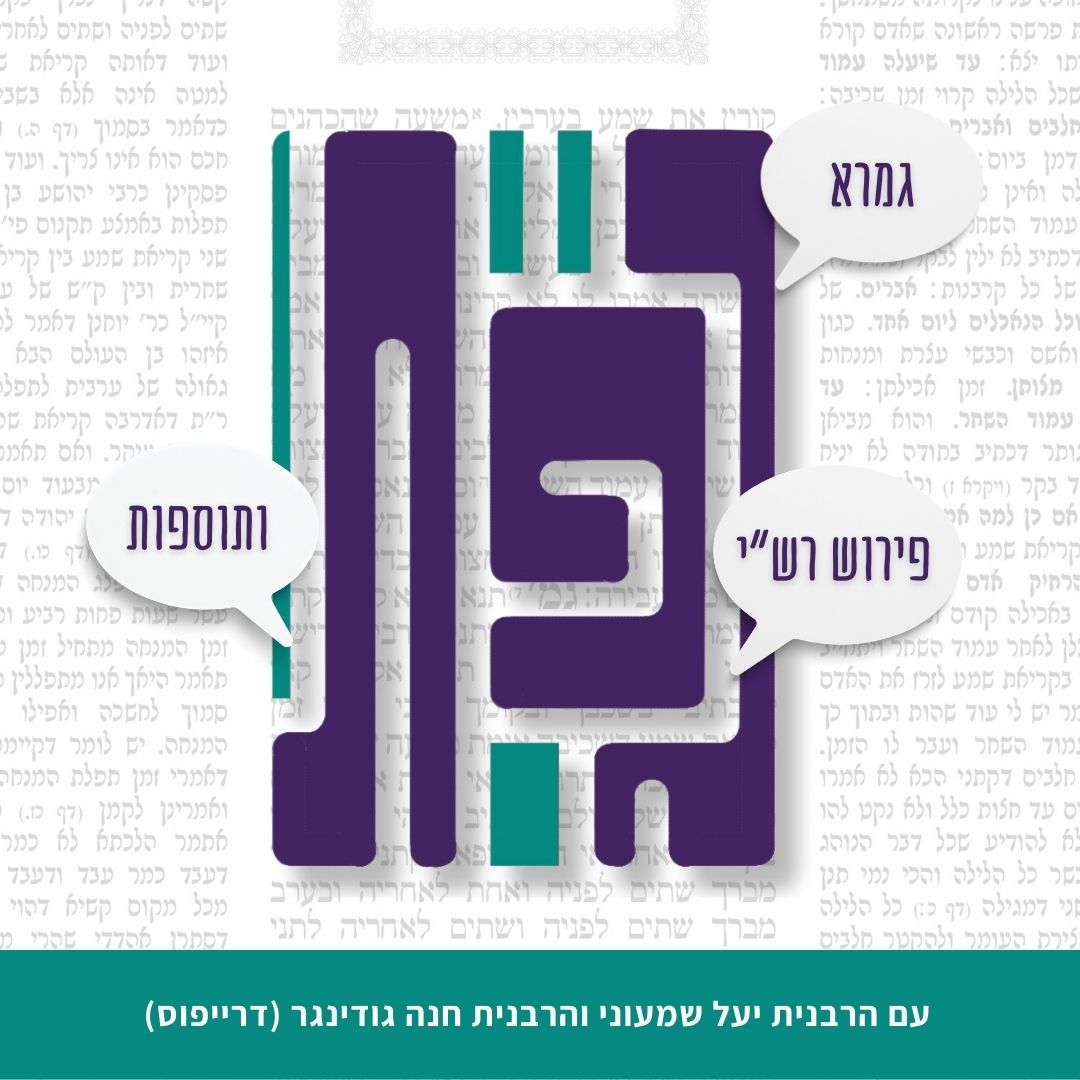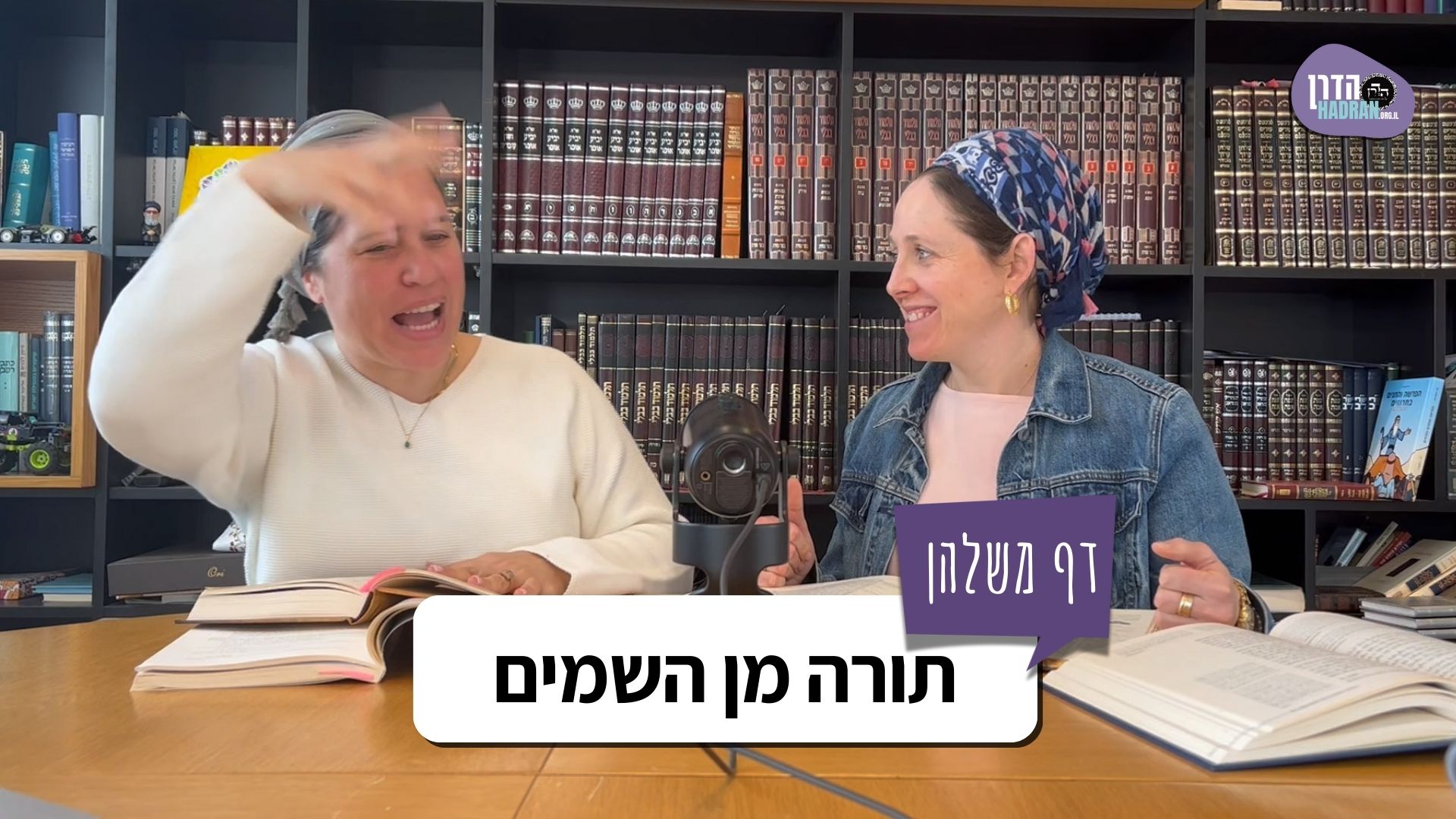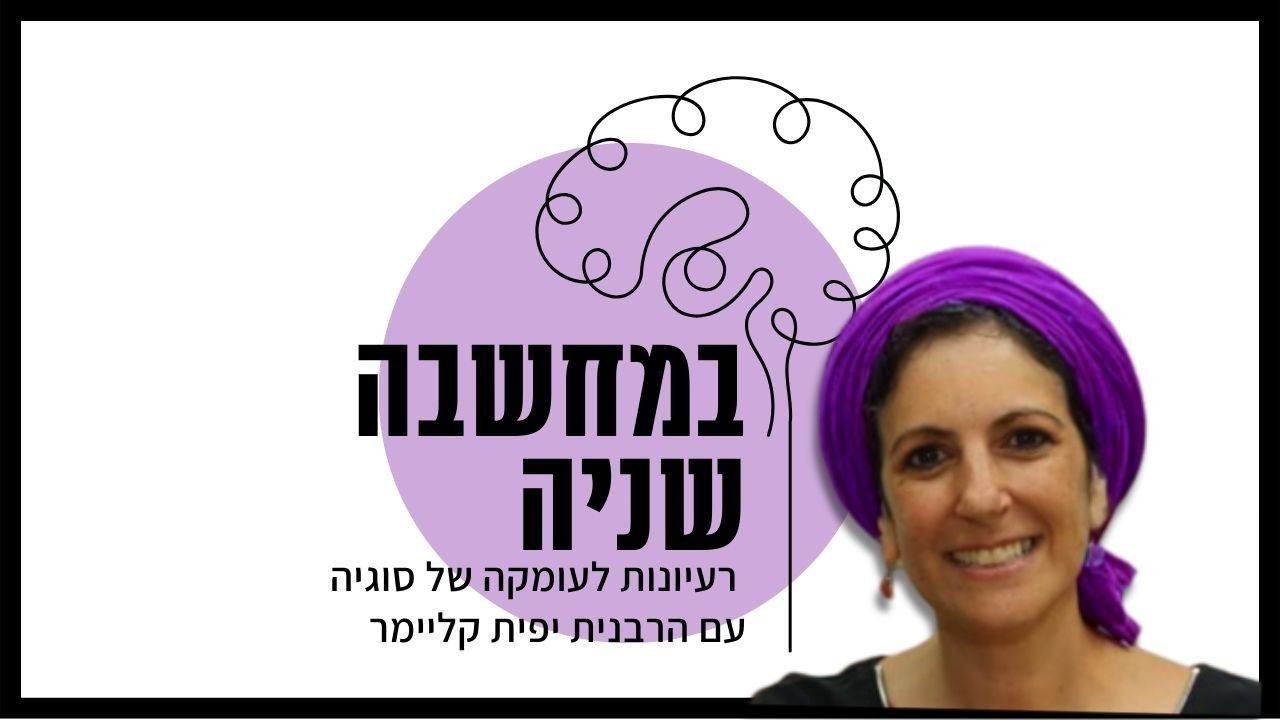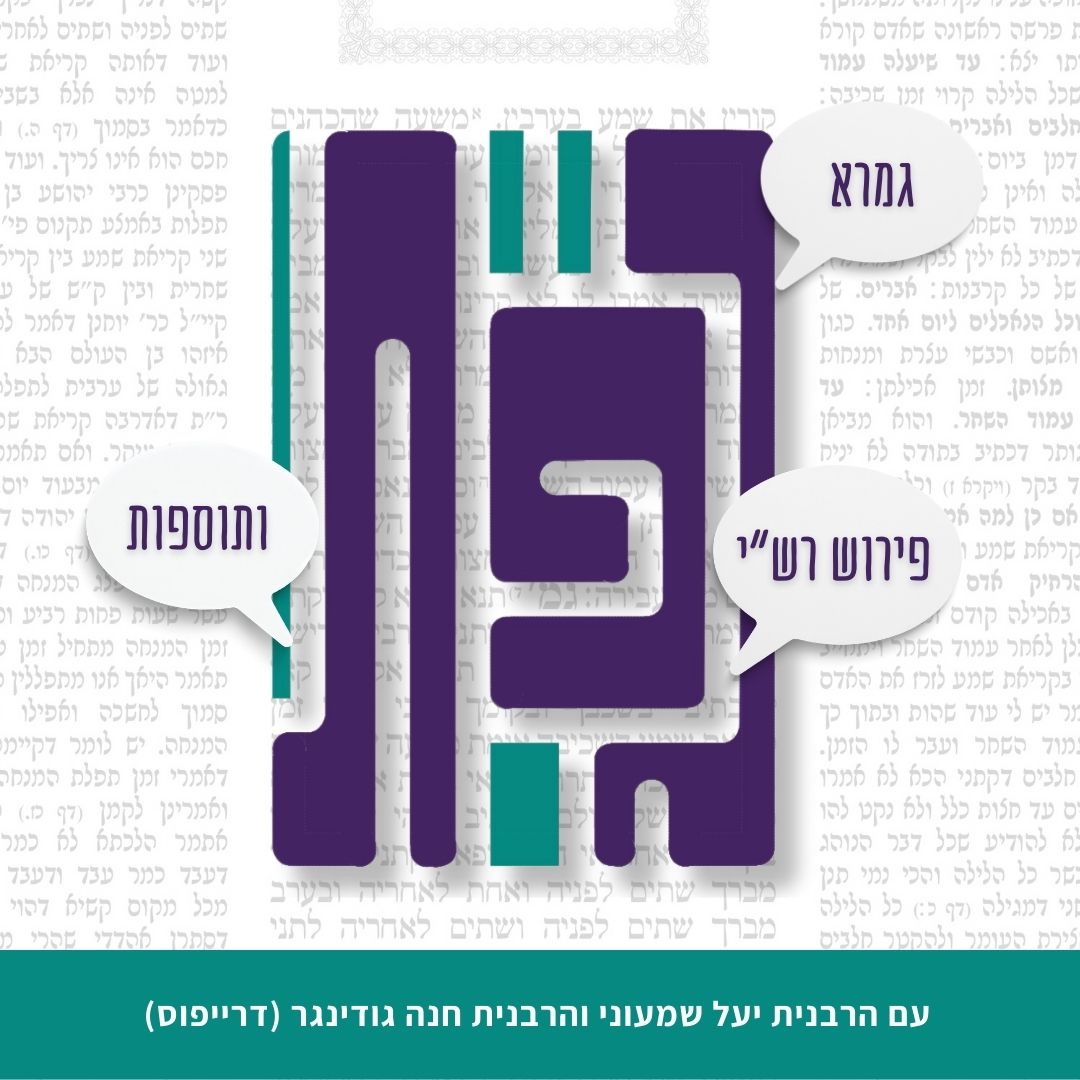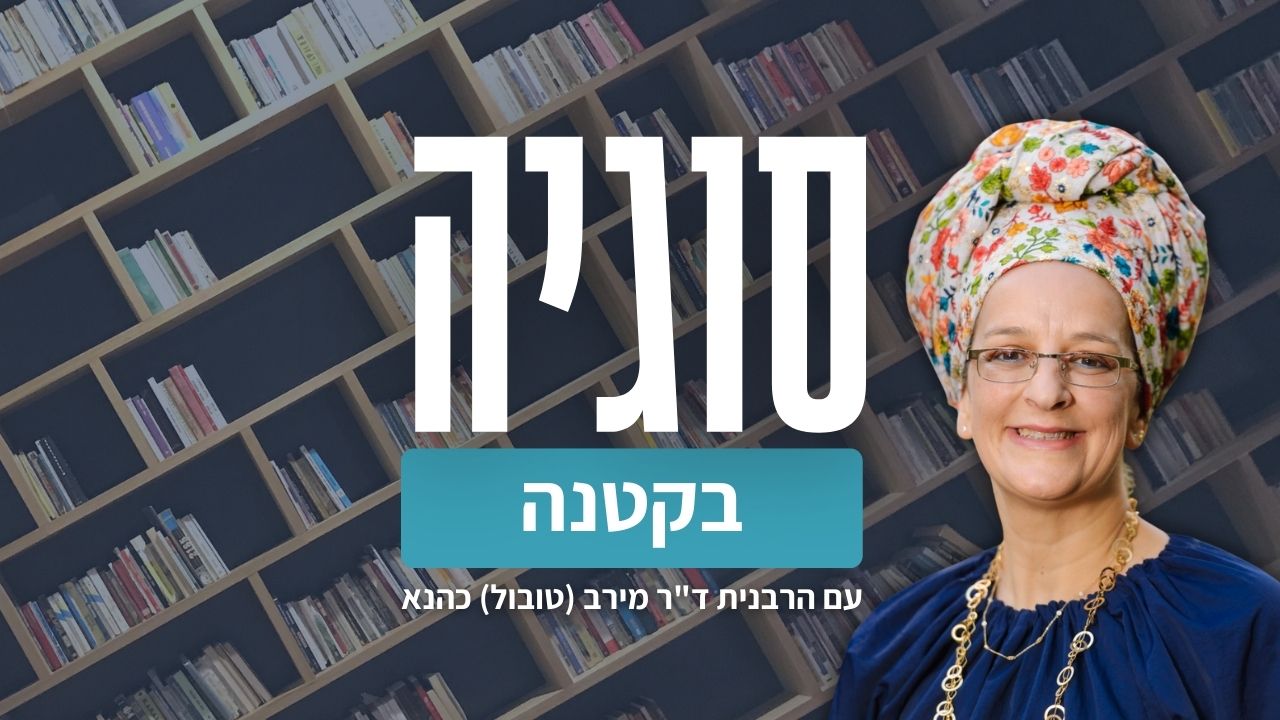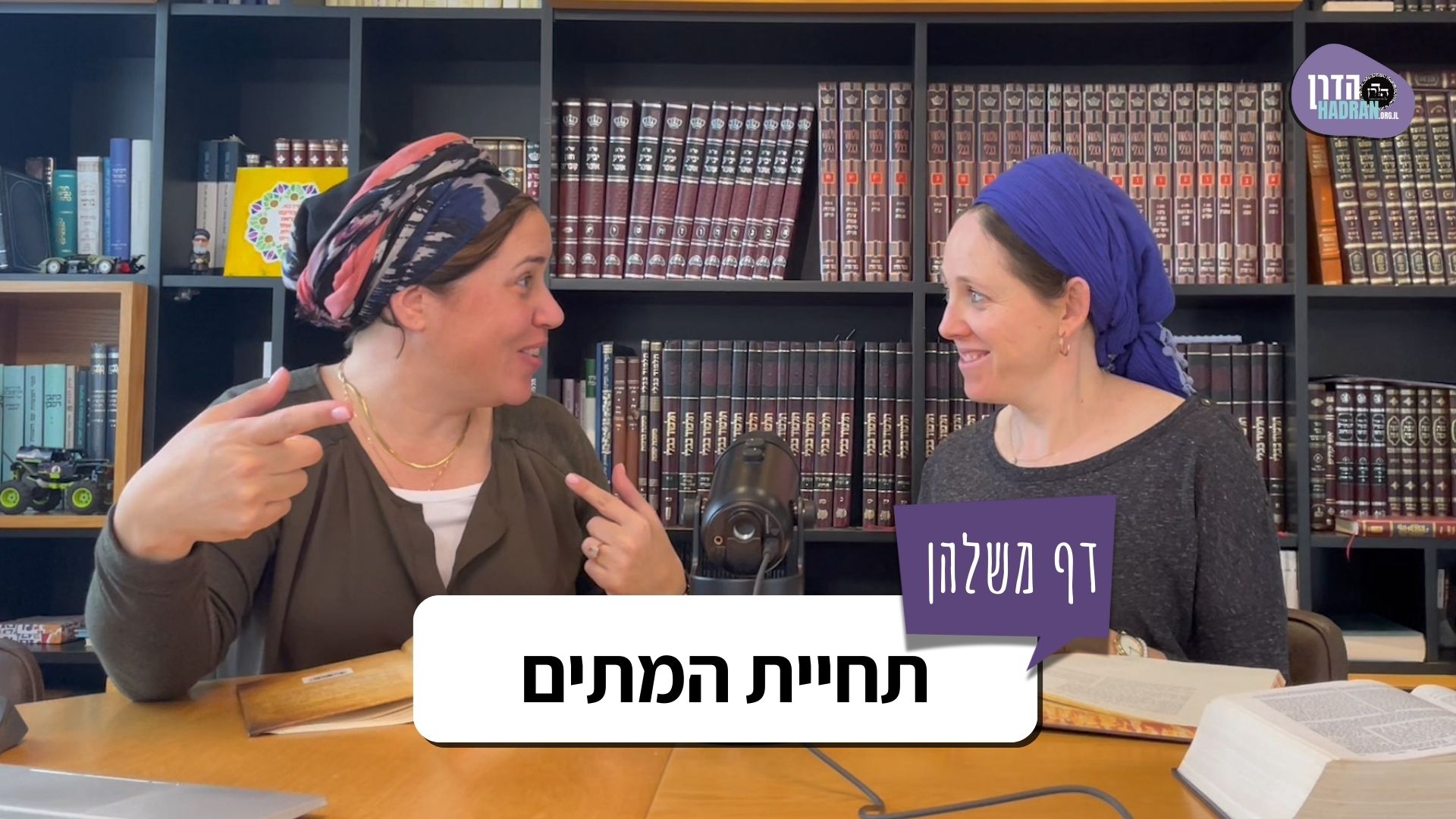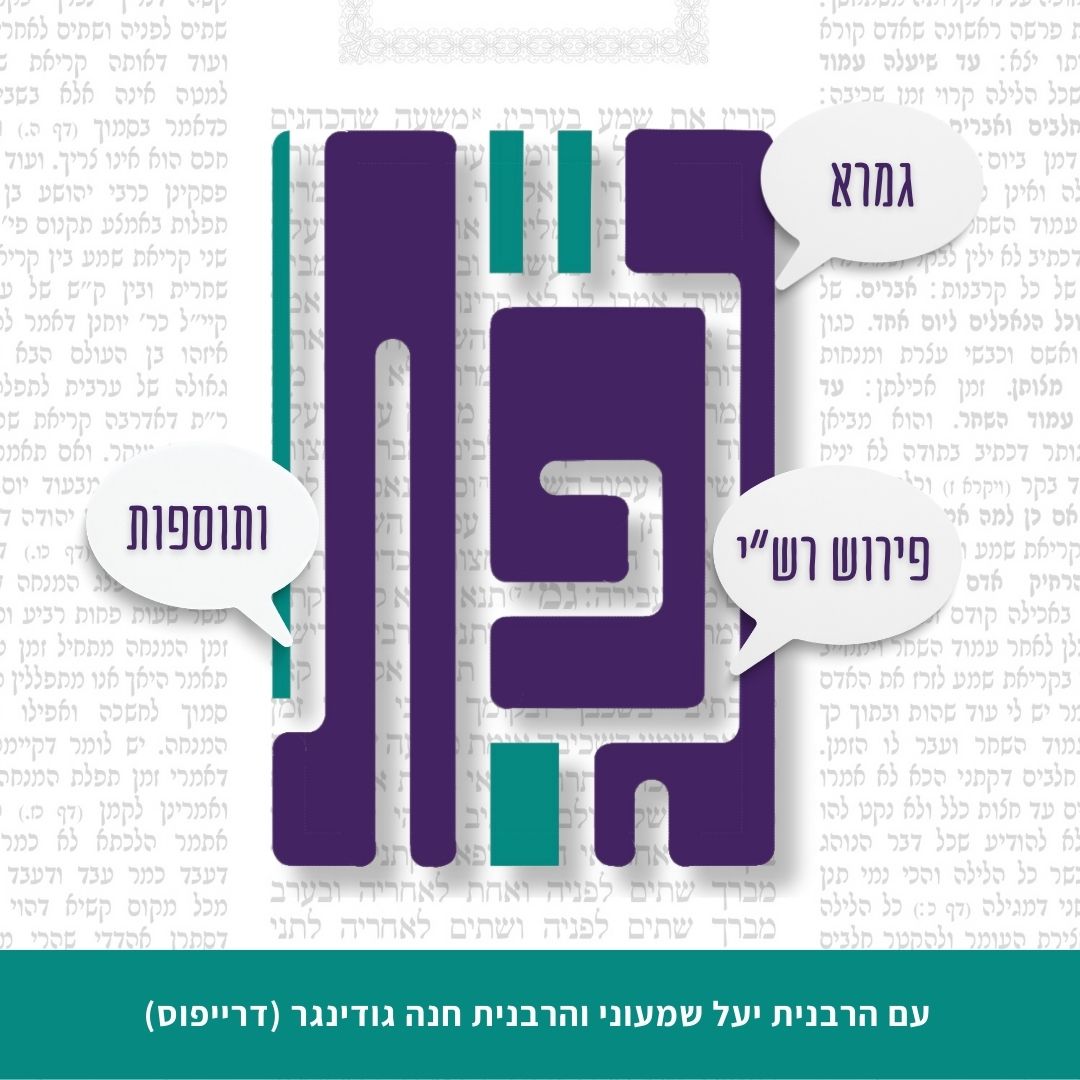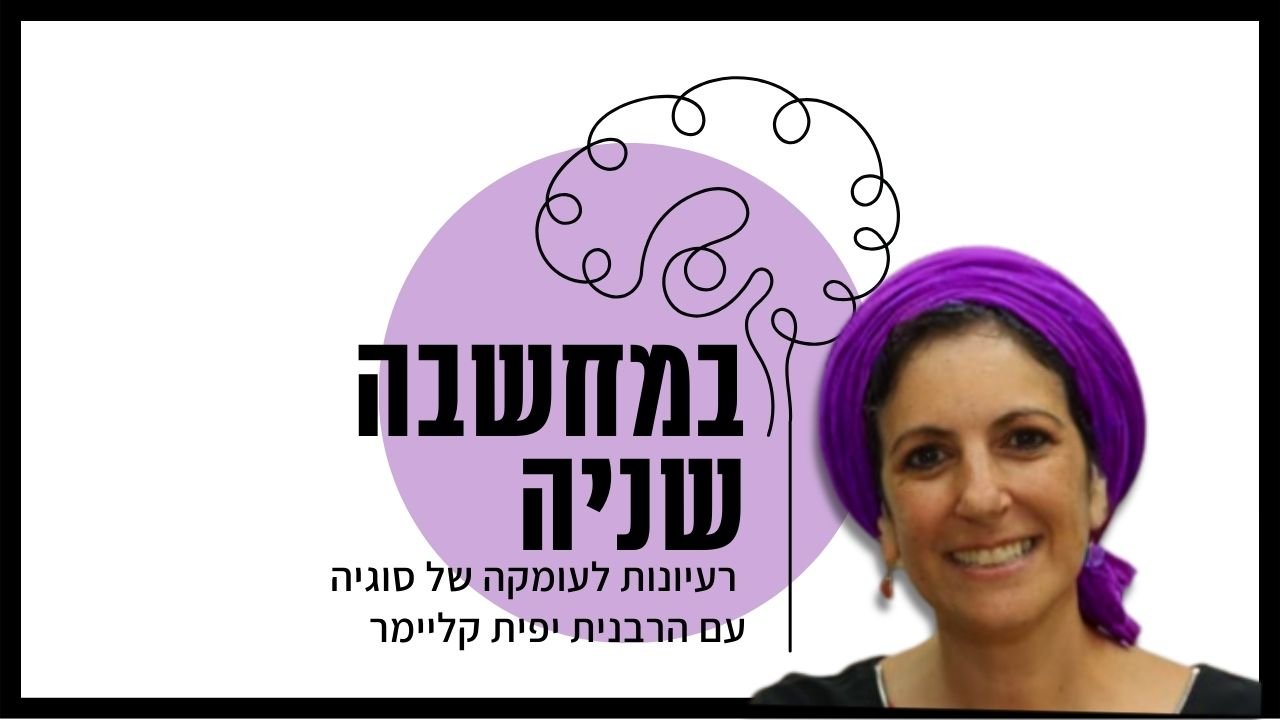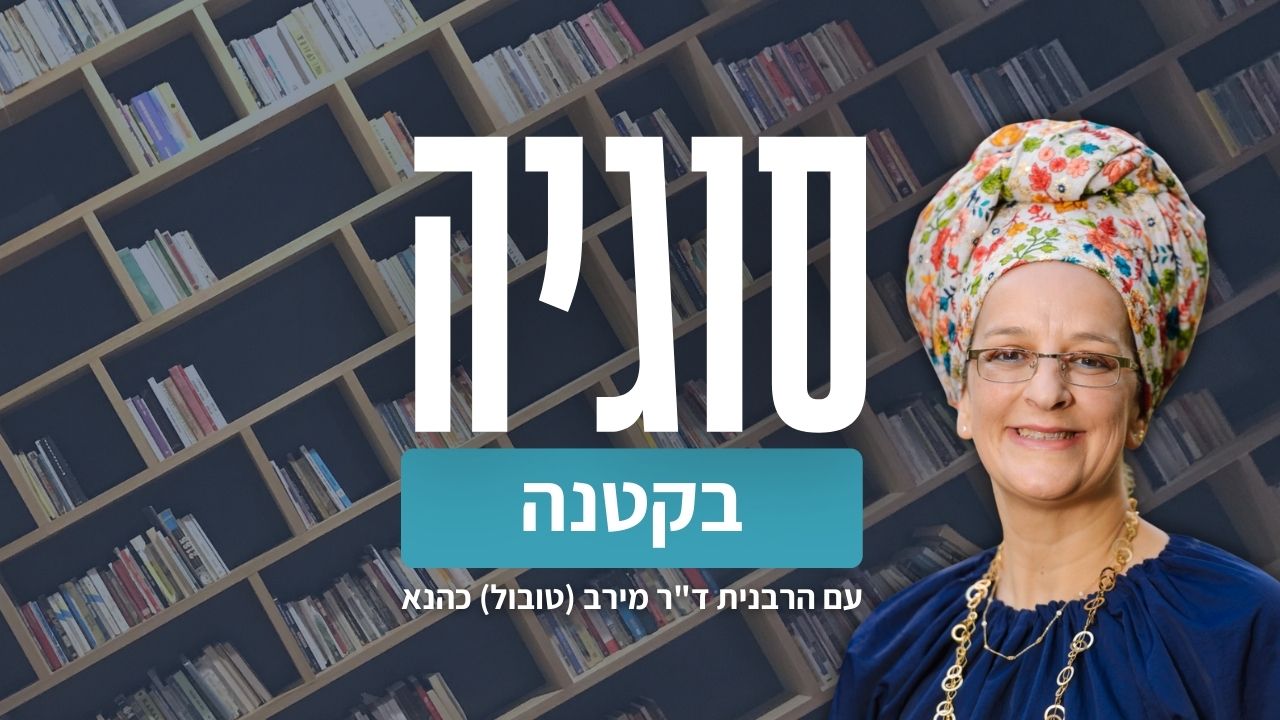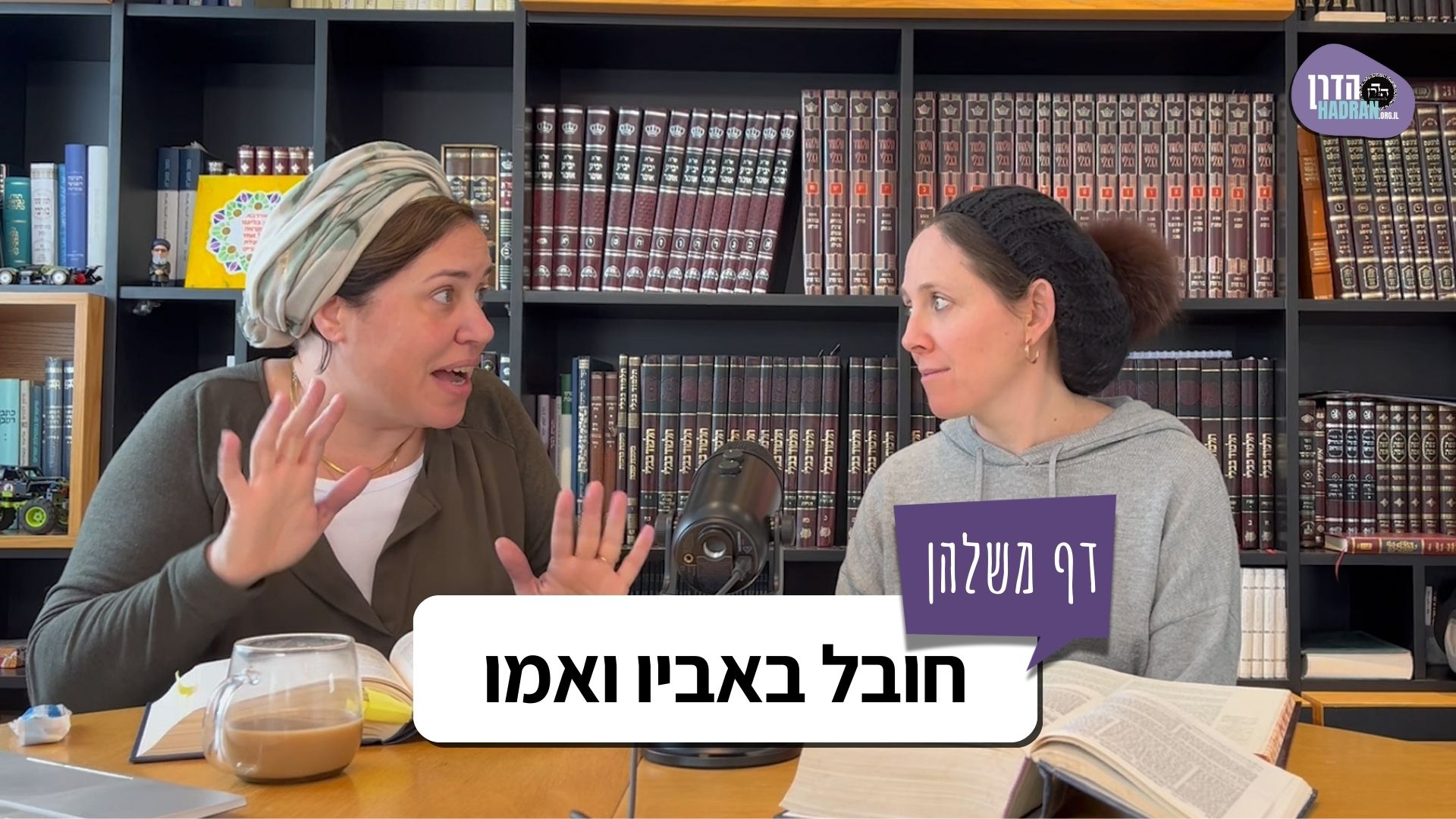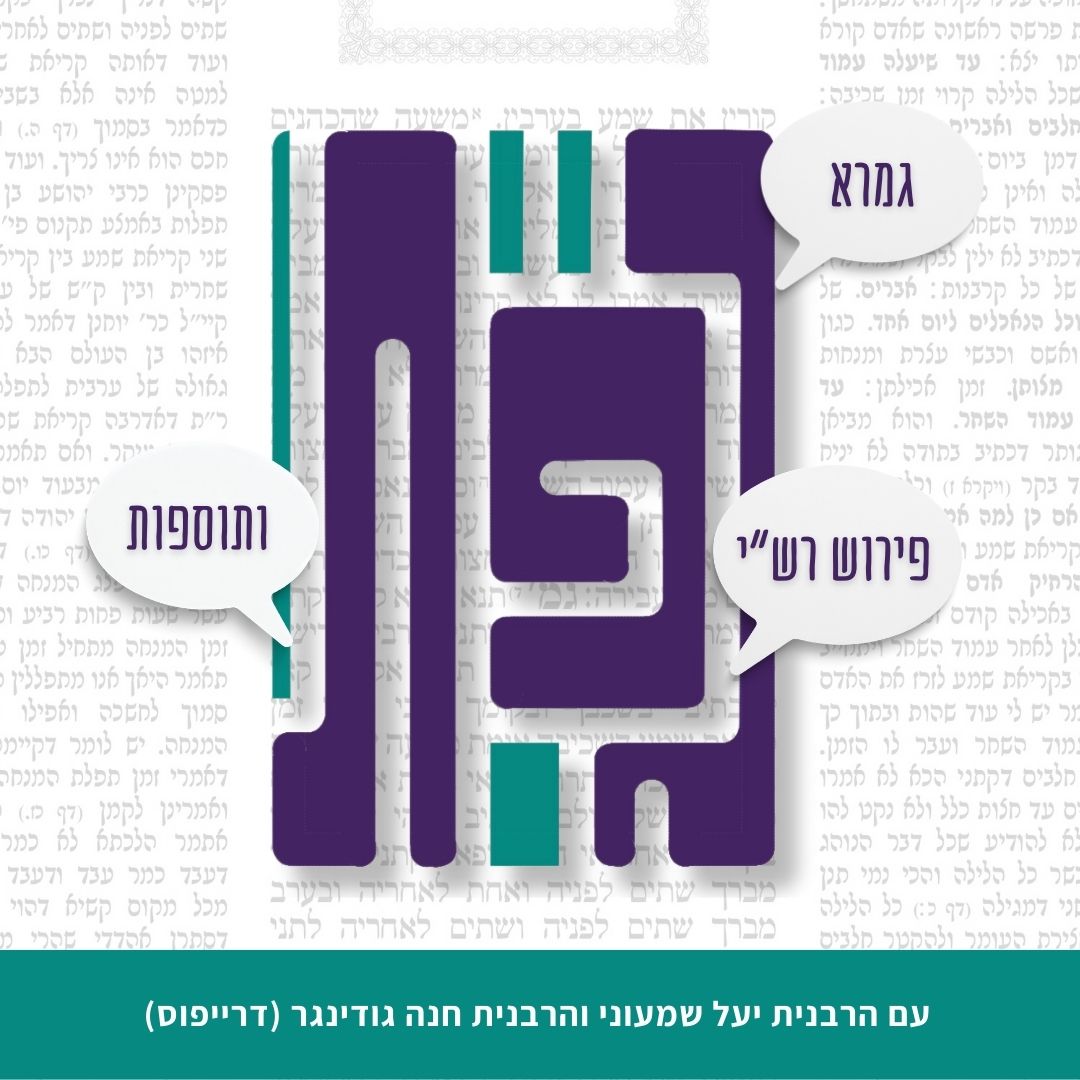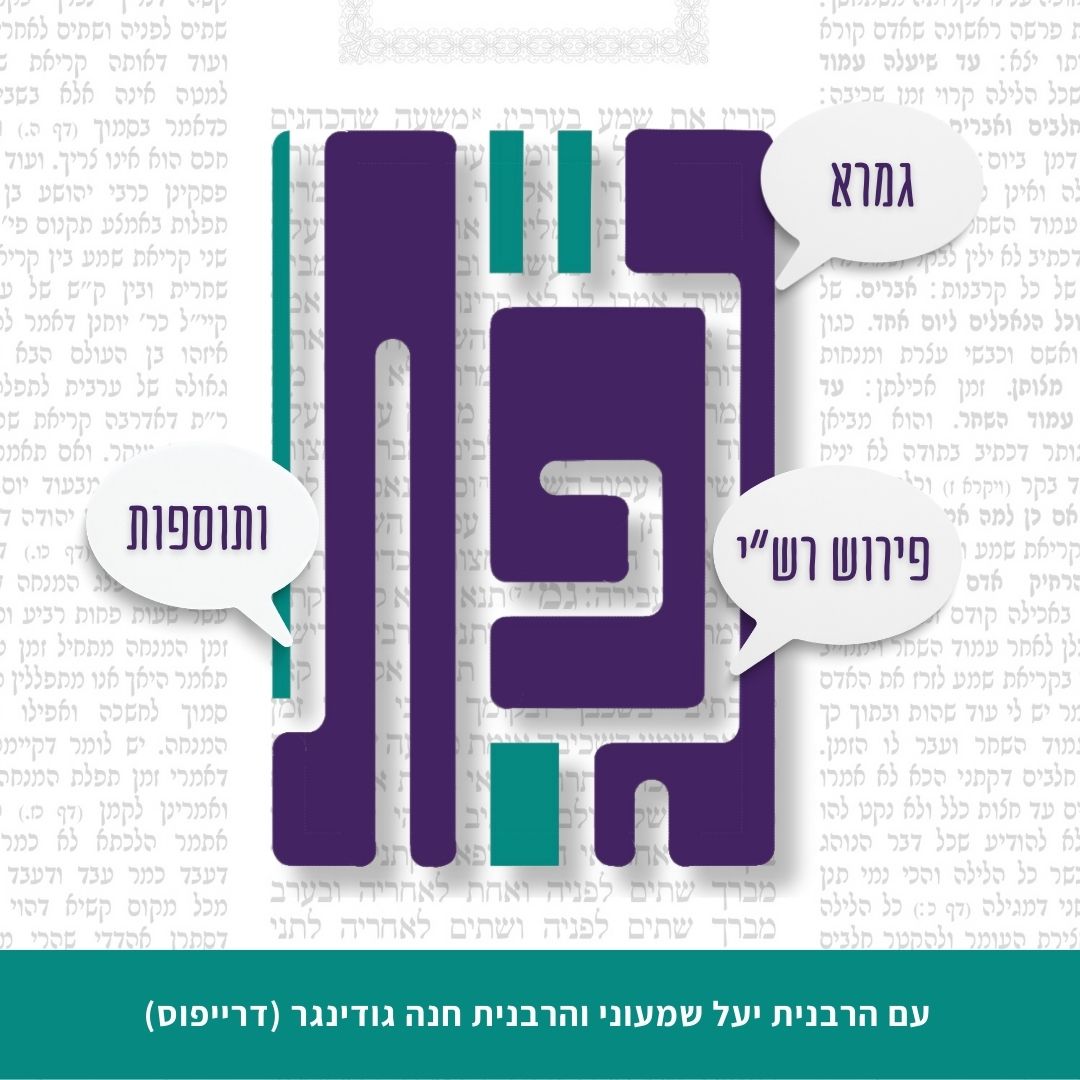סנהדרין יב
בִּשְׁנֵי רְעָבוֹן.
during years of famine. When grain is scarce, intercalating the year would exacerbate the food shortage by delaying the omer offering, which is brought in Nisan, thereby prolonging the period during which the new crop is forbidden.
תַּנְיָא, רַבִּי אוֹמֵר: ״וְאִישׁ בָּא מִבַּעַל שָׁלִישָׁה וַיָּבֵא לְאִישׁ הָאֱלֹהִים לֶחֶם בִּכּוּרִים עֶשְׂרִים לֶחֶם שְׂעֹרִים וְגוֹ׳״.
It is taught in a baraita: Rabbi Yehuda HaNasi says that this principle can be demonstrated based on an incident related in the Bible. The verse states with regard to the prophet Elisha: “And there came a man from Ba’al Shalisha, and he brought to the man of God bread of the first fruits, twenty loaves of barley, and fresh ears of corn in his sack. And he said: Give to the people, that they may eat” (II Kings 4:42).
וְאֵין לְךָ קַלָּה בְּכׇל אֶרֶץ יִשְׂרָאֵל לְבַשֵּׁל פֵּירוֹתֶיהָ יוֹתֵר מִבַּעַל שָׁלִישָׁה, וְאַף עַל פִּי כֵן לֹא בִּכְּרָה אֶלָּא מִין אֶחָד. שֶׁמָּא תֹּאמַר: חִטִּים? תַּלְמוּד לוֹמַר: ״שְׂעוֹרִים״. שֶׁמָּא תֹּאמַר: לִפְנֵי הָעוֹמֶר? תַּלְמוּד לוֹמַר: ״תֵּן לָעָם וְיֹאכֵלוּ״. אַחַר הָעוֹמֶר הָיָה.
The incident is analyzed: You do not have in all of Eretz Yisrael an environment in which fruit ripens more swiftly than in Ba’al Shalisha, and even so, only one of the seven species had ripened at that time, as the verse testifies that he brought him “bread of the first fruits.” Lest you say the verse speaks of wheat, which ripens close to the time of the festival of Shavuot, the verse states “barley.” Lest you say that the incident took place before the omer offering was sacrificed, the verse states: “Give to the people, that they may eat.” As they were permitted to eat, it must be that the incident was after the omer offering was brought.
אֱמוֹר מֵעַתָּה: רְאוּיָה הָיְתָה אוֹתָהּ שָׁנָה שֶׁתִּתְעַבֵּר, וּמִפְּנֵי מָה לֹא עִיבְּרָהּ אֱלִישָׁע? שֶׁשְּׁנַת בַּצּוֹרֶת הָיְתָה, וְהָיוּ הַכֹּל רָצִין לְבֵית הַגֳּרָנוֹת.
Based on this, say that even in the place in which fruit ripened the fastest in all of Eretz Yisrael, after the omer had been brought, only the barley had ripened. Evidently, the year was fit to be intercalated, because the spring produce was not sufficiently mature in time. And for what reason did the prophet Elisha not intercalate it? Because it was a year of scarcity, as described in the Bible (see II Kings 4:38), and everyone was running to the granary. Intercalating the year would have made it even more difficult to obtain produce.
תָּנוּ רַבָּנַן: אֵין מְעַבְּרִין אֶת הַשָּׁנָה לִפְנֵי רֹאשׁ הַשָּׁנָה, וְאִם עִיבְּרוּהָ – אֵינָהּ מְעוּבֶּרֶת. אֲבָל מִפְּנֵי הַדְּחָק מְעַבְּרִין אוֹתָהּ אַחַר רֹאשׁ הַשָּׁנָה מִיָּד, וְאַף עַל פִּי כֵּן אֵין מְעַבְּרִין אֶלָּא אֲדָר.
§ The Sages taught in a baraita (Tosefta 2:3): The court may not intercalate the year before Rosh HaShana. And if the court intercalated it this early, it is not intercalated. But if there was a need to intercalate it early due to exigent circumstances, e.g., religious persecution, they may intercalate it immediately after Rosh HaShana. Even so, they may intercalate it only by adding a second month of Adar.
אִינִי? וְהָא שְׁלַחוּ לֵיהּ לְרָבָא: זוּג בָּא מֵרַקַּת, וּתְפָשׂוֹ נֶשֶׁר, וּבְיָדוֹ דְּבָרִים הַנַּעֲשִׂים בְּלוּז. וּמַאי נִיהוּ? תְּכֵלֶת. בִּזְכוּת הָרַחֲמִים וּבִזְכוּתָם יָצְאוּ בְּשָׁלוֹם.
The Gemara asks: Is that so, that intercalation may be determined only after Rosh HaShana? But the Sages of Eretz Yisrael sent the following encoded message to Rava during the time of Roman persecution: A pair of Torah scholars came from Rakkath, the biblical name for Tiberias (see Joshua 19:35), which was the seat of the Sanhedrin in Rava’s time. They meant to reach the Diaspora community, but the pair was apprehended by the eagle, i.e., Roman soldiers, whose symbol was the eagle; and in their possession were precious items made in Luz. The Gemara interrupts the story to explain: And what are those items from Luz? Sky-blue dye, which is necessary for ritual fringes. The message continued: In the merit of divine mercy and in their merit, they were spared execution and emerged in peace. Nevertheless, they did not reach their destination.
וַעֲמוּסֵי יְרֵיכֵי נַחְשׁוֹן בִּקְּשׁוּ לִקְבּוֹעַ נְצִיב אֶחָד, וְלֹא הִנִּיחָן אֲדוֹמִי הַלָּז. אֲבָל בַּעֲלֵי אֲסוּפּוֹת נֶאֶסְפוּ וְקָבְעוּ לוֹ נְצִיב אֶחָד בְּיֶרַח שֶׁמֵּת בּוֹ אַהֲרֹן הַכֹּהֵן. חַשּׁוֹבֵי – מְחַשְּׁבִי, גַּלּוֹיֵי – לָא מְגַלּוּ.
The message continued: And the offspring of Nahshon, meaning the Sages of the court of the Nasi, who was descended from the prince of Judah, Nahshon ben Amminadab (see Numbers 7:12), sought to establish a pillar, i.e., they sought to add a month to the year. But that Edomite, the local Roman governor, did not allow them to intercalate the year. Nevertheless, the members of the assembly gathered, and they established a pillar, in the month in which Aaron the priest died, i.e., the Sages of Eretz Yisrael convened in the month of Av, which is before Rosh HaShana, and determined that the following year should be intercalated. Evidently, then, in exigent circumstances, intercalation may be done even before Rosh HaShana. The Gemara answers: The court may calculate the need for an extra month even before Rosh HaShana, but they may not reveal and publicize the decision until after Rosh HaShana.
מַאי מַשְׁמַע דְּהַאי ״נְצִיב״ לִישָּׁנָא דְּיַרְחָא הוּא? דִּכְתִיב: ״וְלִשְׁלֹמֹה שְׁנֵים עָשָׂר נִצָּבִים עַל כׇּל יִשְׂרָאֵל וְכִלְכְּלוּ אֶת הַמֶּלֶךְ וְאֶת אֲנָשָׁיו חֹדֶשׁ בַּשָּׁנָה״. וְהָכְתִיב: ״וּנְצִיב אֶחָד [אֲשֶׁר] בָּאָרֶץ״? רַב יְהוּדָה וְרַב נַחְמָן, חַד אָמַר: אֶחָד מְמוּנֶּה עַל כּוּלָּם, וְחַד אָמַר: כְּנֶגֶד חֹדֶשׁ הָעִיבּוּר.
The Gemara asks about the language of the coded message. From where may it be inferred that this word pillar [netziv] is a term for the month? As it is written: “And Solomon had twelve officers [netzivim] over all Israel, and they provided for the king and his household for a month in the year” (I Kings 4:7). This indicates that each netziv was responsible for a particular month. Once this verse was quoted, the Gemara inquires: But isn’t it written afterward: “And one officer that was in the land” (I Kings 4:19), indicating that there were more than twelve netzivim? Rav Yehuda and Rav Naḥman offer answers. One says: One officer was appointed over all of the others. And one says: The extra officer corresponded to the intercalated month. If the year had an additional month, he was responsible for the king’s provisions during that month.
תָּנוּ רַבָּנַן: אֵין מְעַבְּרִין אֶת הַשָּׁנָה לֹא מִשָּׁנָה לַחֲבֶרְתָּהּ, וְלֹא שָׁלֹשׁ שָׁנִים זוֹ אַחַר זוֹ. אָמַר רַבִּי שִׁמְעוֹן: מַעֲשֶׂה בְּרַבִּי עֲקִיבָא שֶׁהָיָה חָבוּשׁ בְּבֵית הָאֲסוּרִים, וְעִיבֵּר שָׁלֹשׁ שָׁנִים זוֹ אַחַר זוֹ. אָמְרוּ לוֹ: מִשָּׁם רְאָיָה? בֵּית דִּין יָשְׁבוּ וְקָבְעוּ אַחַת אַחַת בִּזְמַנָּהּ.
§ The Sages taught in a baraita (Tosefta 2:4): The court may not intercalate the year from one year to another, and it does not intercalate three successive years, one directly after the other. Rabbi Shimon says: There was an incident involving Rabbi Akiva at the time when he was incarcerated in prison, and he intercalated three years, one after the other. The Sages said to Rabbi Shimon: Is there any proof from there? Rabbi Akiva merely made the calculations, but a special court sat and established each one at its time.
תָּנוּ רַבָּנַן: אֵין מְעַבְּרִין אֶת הַשָּׁנָה לֹא בִּשְׁבִיעִית וְלֹא בְּמוֹצָאֵי שְׁבִיעִית. אֵימָתַי רְגִילִין לְעַבֵּר? עֶרֶב שְׁבִיעִית. שֶׁל בֵּית רַבָּן גַּמְלִיאֵל הָיוּ מְעַבְּרִין בְּמוֹצָאֵי שְׁבִיעִית.
The Sages taught in a baraita (Tosefta 2:5): The court may not intercalate the year in the Sabbatical Year, so as not to prolong the prohibitions of the Sabbatical Year, nor in the year after the Sabbatical Year, when there is not much produce available, and delaying the consumption of the new crop would also cause hardship. When is the court accustomed to intercalate? On the eve of the Sabbatical Year, which causes no particular challenges. Nevertheless, the courts of the house of Rabban Gamliel would intercalate the year in the year after the Sabbatical Year.
וּבִפְלוּגְתָּא דְּהָנֵי תַּנָּאֵי, דְּתַנְיָא: אֵין מְבִיאִין יָרָק מֵחוּצָה לָאָרֶץ, וְרַבּוֹתֵינוּ הִתִּירוּ. מַאי בֵּינַיְיהוּ? אָמַר רַבִּי יִרְמְיָה: חוֹשְׁשִׁין לְגוּשֵׁיהֶן אִיכָּא בֵּינַיְיהוּ.
And they disagree with regard to the issue that is the subject of the dispute between these tanna’im, as it is taught in a baraita: One may not import vegetables in the Sabbatical Year from outside Eretz Yisrael, and our Rabbis permitted importing such produce. According to the opinion that permits importing produce from outside Eretz Yisrael, there is no concern that the food supply will be exhausted. Therefore, the year following the Sabbatical Year may be intercalated. The Gemara asks: What is the reason for the difference between these two opinions concerning importing produce from outside Eretz Yisrael? Rabbi Yirmeya says: The difference between them relates to whether one is concerned for their clods of earth. Although all agree that the earth outside Eretz Yisrael conveys ritual impurity, the tanna’im dispute whether it is therefore forbidden to bring vegetables into Eretz Yisrael due to concern that small clods of earth may cling to them.
תָּנוּ רַבָּנַן: אֵין מְעַבְּרִין אֶת הַשָּׁנָה מִפְּנֵי הַטּוּמְאָה.
§ The Sages taught in a baraita (Tosefta 2:10): The court may not intercalate the year due to ritual impurity, i.e., in the event that most of the Jewish people are in a state of impurity, to give them enough time to become ritually pure before Passover.
רַבִּי יְהוּדָה אוֹמֵר: מְעַבְּרִין. אָמַר רַבִּי יְהוּדָה: מַעֲשֶׂה בְּחִזְקִיָּה מֶלֶךְ יְהוּדָה שֶׁעִיבֵּר אֶת הַשָּׁנָה מִפְּנֵי הַטּוּמְאָה, וּבִקֵּשׁ רַחֲמִים עַל עַצְמוֹ, דִּכְתִיב: ״כִּי מַרְבִּית הָעָם רַבַּת מֵאֶפְרַיִם וּמְנַשֶּׁה יִשָּׂשכָר וּזְבֻלוּן לֹא הִטֶּהָרוּ
Rabbi Yehuda says: The court may intercalate the year due to ritual impurity. Rabbi Yehuda said: There was an incident involving Hezekiah, king of Judea, who intercalated the year due to ritual impurity (II Chronicles 30:2). And after doing so, he requested compassion for himself, as it is written: “For a multitude of the people, even many of Ephraim and Manasseh, Issachar and Zebulun, had not cleansed themselves,
כִּי אָכְלוּ אֶת הַפֶּסַח בְּלֹא כַכָּתוּב כִּי הִתְפַּלֵּל חִזְקִיָּהוּ עֲלֵיהֶם לֵאמֹר ה׳ הַטּוֹב יְכַפֵּר בְּעַד״.
yet they ate the Paschal lamb not as is written. For Hezekiah had prayed for them, saying: May the good Lord pardon everyone who sets his heart to seek God…though he not be cleansed according to the purification that pertains to sacred items” (II Chronicles 30:18–19).
רַבִּי שִׁמְעוֹן אוֹמֵר: אִם מִפְּנֵי הַטּוּמְאָה עִיבְּרוּהָ, מְעוּבֶּרֶת. אֶלָּא מִפְּנֵי מָה בִּיקֵּשׁ רַחֲמִים עַל עַצְמוֹ? שֶׁאֵין מְעַבְּרִין אֶלָּא אֲדָר, וְהוּא עִיבֵּר נִיסָן בְּנִיסָן. רַבִּי שִׁמְעוֹן בֶּן יְהוּדָה אוֹמֵר מִשּׁוּם רַבִּי שִׁמְעוֹן: מִפְּנֵי שֶׁהִשִּׂיא אֶת יִשְׂרָאֵל לַעֲשׂוֹת פֶּסַח שֵׁנִי.
Rabbi Shimon says: If the court intercalated the year due to ritual impurity, it is indeed intercalated. But if ritual impurity is ultimately a legitimate reason for intercalating the year, for what reason did Hezekiah request compassion for himself? Because the court may intercalate only the month of Adar, and he intercalated the month of Nisan during the month of Nisan itself. Rabbi Shimon ben Yehuda says in the name of Rabbi Shimon: The incident did not involve the intercalation of the year; rather he appealed for mercy because he encouraged the Jewish people to bypass the standard first Pesaḥ and instead to perform the second Pesaḥ.
אָמַר מָר: רַבִּי יְהוּדָה אוֹמֵר: מְעַבְּרִין. אַלְמָא, אִית לֵיהּ לְרַבִּי יְהוּדָה: טוּמְאָה דְּחוּיָה הִיא בְּצִיבּוּר.
Having quoted the Tosefta in its entirety, the Gemara now clarifies several of its details. The Master said above: Rabbi Yehuda says: The court may intercalate the year due to ritual impurity, in order to delay the Paschal offerings, so that the people can perform them in a state of purity. Apparently, Rabbi Yehuda holds that the prohibition against performing the Temple service in a state of ritual impurity is merely overridden in cases involving the public. Although the offerings may be brought when most of the public is in a state of impurity, this course of action is not ideally permitted; one must attempt to find another way to perform the offerings in purity.
וְהָא תַּנְיָא: צִיץ, בֵּין שֶׁיֶּשְׁנוֹ עַל מִצְחוֹ וּבֵין שֶׁאֵינוֹ עַל מִצְחוֹ – מְרַצֶּה, דִּבְרֵי רַבִּי שִׁמְעוֹן. רַבִּי יְהוּדָה אוֹמֵר: עוֹדוֹ עַל מִצְחוֹ – מְרַצֶּה, אֵין עוֹדוֹ עַל מִצְחוֹ – אֵינוֹ מְרַצֶּה.
The Gemara asks: But isn’t it taught in a baraita: The frontplate effects acceptance whether it is on the forehead of the High Priest or whether it is not on the forehead of the High Priest; this is the statement of Rabbi Shimon. Rabbi Yehuda says: As long as it is on his forehead it effects acceptance; if it is no longer on his forehead it does not effect acceptance.
אָמַר לוֹ רַבִּי שִׁמְעוֹן: כֹּהֵן גָּדוֹל בְּיוֹם הַכִּיפּוּרִים יוֹכִיחַ, שֶׁאֵינוֹ עַל מִצְחוֹ וּמְרַצֶּה. אָמַר לוֹ רַבִּי יְהוּדָה: הַנַּח לְיוֹם הַכִּיפּוּרִים, שֶׁטּוּמְאָה הוּתְּרָה בְּצִיבּוּר.
Rabbi Shimon said to Rabbi Yehuda: The case of the High Priest on Yom Kippur can prove that your statement is incorrect, as on Yom Kippur the frontplate is not on the forehead of the High Priest during the time that he wears only linen garments, and it still effects acceptance. Rabbi Yehuda said to him: Leave aside the case of the High Priest on Yom Kippur, as since the Temple service consists wholly of public offerings the atonement of the frontplate is unnecessary. Even without the frontplate, performing the Temple service in a state of impurity is permitted in cases involving the public. If Rabbi Yehuda holds that it is readily permitted to perform Temple service in the instance of public impurity, then why would he sanction intercalating the year in order to give the public more time to become ritually pure?
וְלִיטַעְמָיךְ, תִּיקְשֵׁי לָךְ הִיא גּוּפַהּ: רַבִּי יְהוּדָה אוֹמֵר מְעַבְּרִין, וְאָמַר רַבִּי יְהוּדָה: מַעֲשֶׂה בְּחִזְקִיָּה מֶלֶךְ יְהוּדָה שֶׁעִיבֵּר אֶת הַשָּׁנָה מִפְּנֵי הַטּוּמְאָה, וּבִיקֵּשׁ רַחֲמִים עַל עַצְמוֹ? אֶלָּא, חַסּוֹרֵי מְחַסְּרָא וְהָכִי קָתָנֵי: אֵין מְעַבְּרִין אֶת הַשָּׁנָה מִפְּנֵי הַטּוּמְאָה, וְאִם עִיבְּרוּהָ – מְעוּבֶּרֶת. רַבִּי יְהוּדָה אוֹמֵר: אֵינָהּ מְעוּבֶּרֶת. וְאָמַר רַבִּי יְהוּדָה וְכוּ׳.
The Gemara rejects the question concerning the opinion of Rabbi Yehuda: And according to your reasoning, the Tosefta itself should pose a difficulty for you. The Tosefta states: Rabbi Yehuda says: The court may intercalate the year due to impurity. And Rabbi Yehuda said: There was an incident involving Hezekiah, king of Judea, who intercalated the year due to ritual impurity, and afterward he requested compassion for himself. Why would he request compassion after having made a legitimate decision? Rather, it must be concluded that the Tosefta is incomplete and this is what it is teaching: The court does not intercalate the year due to impurity, but if the court intercalated it, it is intercalated. Rabbi Yehuda says: Even if the court intercalated it, it is not intercalated. And to prove his point, Rabbi Yehuda said that there was an incident involving Hezekiah, who intercalated the year due to impurity and subsequently appealed for mercy.
אִי הָכִי, רַבִּי שִׁמְעוֹן אוֹמֵר: אִם מִפְּנֵי הַטּוּמְאָה עִיבְּרוּהָ – מְעוּבֶּרֶת. הַיְינוּ תַּנָּא קַמָּא? אָמַר רָבָא: לְכַתְּחִלָּה אִיכָּא בֵּינַיְיהוּ. תַּנְיָא נָמֵי הָכִי: אֵין מְעַבְּרִין אֶת הַשָּׁנָה מִפְּנֵי הַטּוּמְאָה לְכַתְּחִילָּה. רַבִּי שִׁמְעוֹן אוֹמֵר: מְעַבְּרִין. אֶלָּא מִפְּנֵי מָה בִּקֵּשׁ רַחֲמִים עַל עַצְמוֹ? שֶׁאֵין מְעַבְּרִין אֶלָּא אֲדָר, וְהוּא עִיבֵּר נִיסָן בְּנִיסָן.
The Gemara asks: If that is so, meaning if this is the correct way to understand the Tosefta, then the next statement in the Tosefta cannot be reconciled: Rabbi Shimon says: If they intercalated the year due to ritual impurity, it is indeed intercalated. According to this explanation, this is identical to the opinion of the first tanna, who also says that the intercalation is effective. Rava said: The difference between these two opinions is whether the year may be intercalated due to impurity ab initio. According to the first tanna, although the intercalation is valid after the fact, impurity is not an appropriate reason to intercalate the year. Rabbi Shimon holds that it is an appropriate reason. This is also taught in a baraita: The court may not intercalate the year due to impurity ab initio. Rabbi Shimon says: The court may intercalate the year due to impurity, even ab initio. Rather, according to this opinion, for what reason did Hezekiah request compassion for himself? Because the court may intercalate only Adar, but he intercalated Nisan during Nisan.
אָמַר מָר: שֶׁאֵין מְעַבְּרִין אֶלָּא אֲדָר, וְהוּא עִיבֵּר נִיסָן בְּנִיסָן. וְלֵית לֵיהּ לְחִזְקִיָּה ״הַחֹדֶשׁ הַזֶּה לָכֶם״ – זֶה נִיסָן, וְאֵין אַחֵר נִיסָן! טְעָה בְּדִשְׁמוּאֵל, דְּאָמַר שְׁמוּאֵל: אֵין מְעַבְּרִין אֶת הַשָּׁנָה בְּיוֹם שְׁלֹשִׁים שֶׁל אֲדָר, הוֹאִיל וְרָאוּי לְקוֹבְעוֹ נִיסָן.
The Master said above: Hezekiah requested compassion because the court, when intercalating the year, may intercalate only Adar, and he intercalated Nisan during Nisan. How could Hezekiah act in this way? But doesn’t Hezekiah accept the following interpretive tradition: The verse states: “This month shall be for you the beginning of months; it shall be the first month of the year for you” (Exodus 12:2). This teaches that this month is Nisan, and another month cannot be Nisan. Therefore, the court cannot add another month of Nisan. The Gemara answers: Hezekiah erred with regard to the halakha that would later be expounded by Shmuel. As Shmuel says: The court may not intercalate the year on the thirtieth day of Adar, since although it is part of Adar, it is fit to establish it as the first day of Nisan. As the day that may be assigned as the New Moon of Nisan, it has the same status as does Nisan, and the year may not be intercalated then.
וְאִיהוּ סָבַר: ״הוֹאִיל וְרָאוּי״ לָא אָמְרִינַן. תַּנְיָא נָמֵי הָכִי: אֵין מְעַבְּרִין אֶת הַשָּׁנָה בְּיוֹם שְׁלֹשִׁים שֶׁל אֲדָר, הוֹאִיל וְרָאוּי לְקוֹבְעוֹ נִיסָן.
And Hezekiah held: We do not say the principle: Since it is fit. Since it was technically still Adar, he initially thought it was permitted to intercalate the year on that day. The Gemara notes: This opinion is also taught in a baraita: The court may not intercalate the year on the thirtieth day of Adar, since it is fit to establish it as the first day of Nisan.
רַבִּי שִׁמְעוֹן בֶּן יְהוּדָה אוֹמֵר מִשּׁוּם רַבִּי שִׁמְעוֹן: מִפְּנֵי שֶׁהִשִּׂיא אֶת יִשְׂרָאֵל לַעֲשׂוֹת פֶּסַח שֵׁנִי. הֵיכִי דָּמֵי? אָמַר רַב אָשֵׁי: כְּגוֹן שֶׁהָיוּ יִשְׂרָאֵל מֶחֱצָה טְמֵאִים, מֶחֱצָה טְהוֹרִים, וְנָשִׁים מַשְׁלִימוֹת לַטְּהוֹרִים וְעוֹדְפוֹת עֲלֵיהֶם.
The Gemara further analyzes the Tosefta quoted above: Rabbi Shimon ben Yehuda says in the name of Rabbi Shimon: Hezekiah requested compassion because he encouraged the Jewish people to perform the second Pesaḥ. What are the circumstances, such that Hezekiah acted in this unusual manner and later regretted his decision? Rav Ashi said: It was a case where half the Jewish people were impure and half were pure. And the women among them completed the ranks of the pure and the combined total then exceeded the impure ones. A majority of the men were impure, but as most of the women were pure, if they were included in the tally the majority of the public was then pure. Hezekiah was unsure whether the women should be counted, as he was unsure if they are obligated to bring the Paschal offering.
מֵעִיקָּרָא סְבַר: נָשִׁים בָּרִאשׁוֹן חוֹבָה, דְּהָווּ מִיעוּטָן טְמֵאִים, וּמִיעוּטָן מִידְּחוּ לְפֶסַח שֵׁנִי. וּלְבַסּוֹף סְבַר: נָשִׁים בָּרִאשׁוֹן רְשׁוּת, דְּהָווּ לְהוּ טְמֵאִים רוּבָּא, וְרוּבָּא לָא מִדְּחוּ לְפֶסַח שֵׁנִי.
Initially, he thought women have an obligation to participate in the first Pesaḥ on the fourteenth of Nisan, so the minority of Jews are impure and the minority should be deferred to the second Pesaḥ. Therefore, he deferred most of the men, as they were ritually impure, to bypass the first Pesaḥ. In the end, he thought women are permitted but not obligated to participate in the first Pesaḥ. So when counting only the men, the impure were the majority of those obligated to bring the offering, and the majority is not deferred to the second Pesaḥ. Instead, they should have sacrificed the offering on the first Pesaḥ despite their impurity. Consequently, having deferred the majority when they should not have been deferred, he regretted his decision.
גּוּפָא, אָמַר שְׁמוּאֵל: אֵין מְעַבְּרִין אֶת הַשָּׁנָה בְּיוֹם שְׁלֹשִׁים שֶׁל אֲדָר, הוֹאִיל וְרָאוּי לְקוֹבְעוֹ נִיסָן. עִיבְּרוּהָ, מַאי? אָמַר עוּלָּא: אֵין מְקַדְּשִׁין אֶת הַחֹדֶשׁ. קִידְּשׁוּ, מַאי? אָמַר רָבָא: בָּטֵל הָעִיבּוּר. רַב נַחְמָן אָמַר: מְעוּבָּר וּמְקוּדָּשׁ.
§ With regard to the question of intercalating the year on the thirtieth of Adar, the Gemara discusses the matter itself. Shmuel says: The court may not intercalate the year on the thirtieth day of Adar, although it is part of Adar, since it is fit to establish the day as the first of Nisan. If they intercalated the year on that day, after the fact, what is the halakha? Ulla says: The intercalation is effective and the court does not sanctify the month on that day, so that the intercalation will have been performed in Adar. The Gemara asks: If another court sanctified the month, what is the halakha? Rava says: The intercalation is void, as it turns out that the intercalation was performed in Nisan. Rav Naḥman disagrees and says: The year is intercalated and the month is also sanctified, because each court has performed an independently valid function.
אֲמַר לֵיהּ רָבָא לְרַב נַחְמָן: מִכְּדֵי מִפּוּרַיָּא לְפִיסְחָא תְּלָתִין יוֹמִין הֲווֹ, וּמִפּוּרַיָּא דָּרְשִׁינַן בְּהִלְכוֹת הַפֶּסַח, דְּתַנְיָא: שׁוֹאֲלִין בְּהִלְכוֹת הַפֶּסַח קוֹדֶם לְפֶסַח שְׁלֹשִׁים יוֹם. רַבָּן שִׁמְעוֹן בֶּן גַּמְלִיאֵל אוֹמֵר: שְׁתֵּי שַׁבָּתוֹת. וְכִי מָטֵי רֵישׁ יַרְחָא מְרַחֲקִין לֵיהּ? אָתֵי לְזַלְזוֹלֵי בְּחָמֵץ!
Rava said to Rav Naḥman: Now, from Purim to Passover is thirty days, and from the time of Purim, we teach the community the halakhot of Passover. As it is taught in a baraita: The people ask questions with regard to the halakhot of Passover beginning thirty days before Passover. Rabban Shimon ben Gamliel says: They ask two weeks before Passover. If so, even during Adar, people know that Passover is approaching. And when the New Moon comes, if the court will distance the Passover holiday another month by adding another Adar at so late a date, then the people will come to treat the Passover prohibitions of leavened bread lightly, believing that the stated time of Passover is incorrect because the Sages decided the dates capriciously.
אֲמַר לֵיהּ: מִידָּע יָדְיעִי דְּשַׁתָּא מְעַבַּרְתָּא בְּחוּשְׁבָּנָא תַּלְיָא מִילְּתָא. אָמְרִי: חוּשְׁבָּנָא הוּא דְּלָא סְלֵיק לְהוּ לְרַבָּנַן עַד הַשְׁתָּא.
Rav Naḥman said to Rava: The masses know that the intercalated year is a matter dependent upon the calculation, which is determined by a complex process. Therefore they say: It is the calculation that did not conclusively emerge for the Sages until now, and they will therefore understand when the true date of Passover is.
אָמַר רַב יְהוּדָה אָמַר שְׁמוּאֵל: אֵין מְעַבְּרִין אֶת הַשָּׁנָה אֶלָּא אִם כֵּן הָיְתָה תְּקוּפָה חֲסֵירָה רוּבֹּה שֶׁל חוֹדֶשׁ. וְכַמָּה רוּבֹּה שֶׁל חוֹדֶשׁ? שִׁשָּׁה עָשָׂר יוֹם; דִּבְרֵי רַבִּי יְהוּדָה.
§ With regard to intercalation on the basis of the season, Rav Yehuda says that Shmuel says: The court intercalates the year only if the season of Tammuz, i.e., the summer, was lacking its completion for most of the month of Tishrei, meaning that the summer season had begun so late in the calendar that the autumnal equinox would occur only after most of the month of Tishrei has passed. Since the festival of Sukkot, beginning on the fifteenth of Tishrei, must fall after the autumnal equinox, a month is added to the previous year, therefore causing the summer season to end and the autumn to begin at an earlier point on the Jewish calendar. This allows Sukkot to begin after the autumnal equinox, within the season of Tishrei. And how much is: Most of the month? Sixteen days; this is the statement of Rabbi Yehuda.

